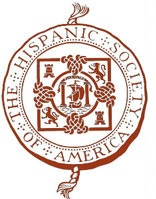
Upholding a family tradition that has lasted over three decades, Ramon Diaz has become a window into the changing landscape of Manhattanville.
Diaz, who owns Cuban restaurant and tapas bar La Floridita on the corner of 125th Street and Broadway, was one of the first business owners in the footprint of Columbia’s future campus to enter into property negotiations with the University. But even he—Columbia’s poster child for successful negotiations with local residents—is becoming disillusioned by the process.
His family first came to Harlem in 1961 after fleeing Cuba. Diaz’s uncle Benny opened La Floridita in 1965, when Ramon was 12 years old.
At the time, there was a large influx of Cubans to the area, and Benny “saw the niche for Cuban food and opened this up,” Diaz said. “At one point, he had seven Floriditas.”
Diaz took charge of La Floridita two years ago. Growing up, he wanted to go into law, but when Benny was diagnosed with pancreatic cancer, Diaz agreed to take over the family business. Since then, Diaz has embraced the challenges of his unexpected job, which includes meeting 700 to 1,000 faces each day.
“Some very colorful characters come in here,” he said. “There’s an 87-year-old ex-lieutenant who’s a born-again Christian. He has a beard down to his chest, and he brings in kids from his church every day and feeds them.”
According to Diaz, “The Eritreans can’t stop talking” about the political unrest in their country, and the restaurant has recently become a meeting spot for a socialist/communist group. In the summertime there are tourists, and Diaz also meets students from across the country, many of whom are seeing New York for the first time.
Then there are “the regular working people who walk in for the cup of coffee and a sandwich, and they all have stories,” Diaz said. “There are customers who have been coming here for 30 years.”
And every day, Diaz comes out of his office in the back of the restaurant to chat. “They call me out, it’s unavoidable,” he said, smiling. “Everybody has recipes, decorative suggestions ... and they want to know if we’re going to stay here.”
That’s something Diaz would like to know himself.
Although he was one of the first Manhattanville business owners to propose a land swap—in which Columbia would offer properties outside the expansion zone in exchange for properties within it—Diaz said he has not received any concrete response from the University.
“They like to go fishing,” he said of Columbia officials. “They throw it out there, but when you finally make a decision, they kind of ignore you.”
He explained that the stakes are high in the land swap deal “I’m on 125th Street and Broadway,” Diaz said. “It’s the Champs Elysées [of New York]—I’m on two of the most famous streets in the world. You move me out of this location, it’s like starting up a new business.”
Diaz is nervous that a change in location could impact the atmosphere of his restaurant. He also emphasized the importance of planning ahead when running a business, and explained that the ambiguity surrounding the University’s expansion has hurt him in that respect.
“Columbia has spoken to me, but it’s all very hypothetical,” he said. “I could get a good offer from them a year from now. I’m a little held back because of the uncertainty. It’s already hurting [the business] to know I might not be here anymore.”
Though Diaz was open to Columbia’s expansion when University officials first approached him, he feels his amenability has not been adequately reciprocated.
“I thought they were being sincere,” Diaz said of his initial impression, “but as we go along, I’m beginning to believe there’s a lot of hypocrisy. Columbia represented to me that Floridita was an institution in the area, that they wanted to keep us around. Lately, I’ve been doubting their so-called good intentions.”
“The expansion could potentially be a very positive thing,” Diaz said, but the University must “do what they represent they’re going to do—put the community first and work around that.”
Though Diaz lives with his family in nearby Englewood, N.J., he has developed deep connections to Harlem over the years, particularly through his relationships with longtime residents—both customers and Floridita employees.
“I have employees who have been working here for 30 years,” Diaz said. “I had a 47-year-old who worked here for 32 years—you do the math.”
Almost all of the employees are closely tied to the area—the most recently hired employee has been working at the restaurant for 11 years and about 50 employees live in the neighborhood. Through them, Diaz knows the vital role Harlem plays in the cultural composition of the city.
“Harlem is probably the last working class neighborhood that’s left in Manhattan,” Diaz said. “I don’t think any place should be exclusively for the rich.”
NB - As it has been pointed out to the various reporters and Spectator's editorial staff Morningisde Heights, Manhattanville and Hamilton Heights are located in the WestSide or West Harlem a uniquely diverse, multi-ethnic, multi-cultural and multilinguisitc amalgam of people forming the great mozaic of New York City.
Our District is not to be confused with Harlem generally recognized as Central Harlem, the hitoric and glorious Black Harlem and that is exactly what happens when your refer to our District as Harlem instead of WestSide or West Harlem - Please know where you are and who we are.
By the way, the name of the restaurant is "El Floridita" only people that knows little of no Spanish or does not know the Cuban original could use the femenine pronoum "La" without realizing that El is proper as it refers to "El [restaurante] Floridita". - JRM








+(3).jpg)



.jpg)
+(3).jpg)


No comments:
Post a Comment